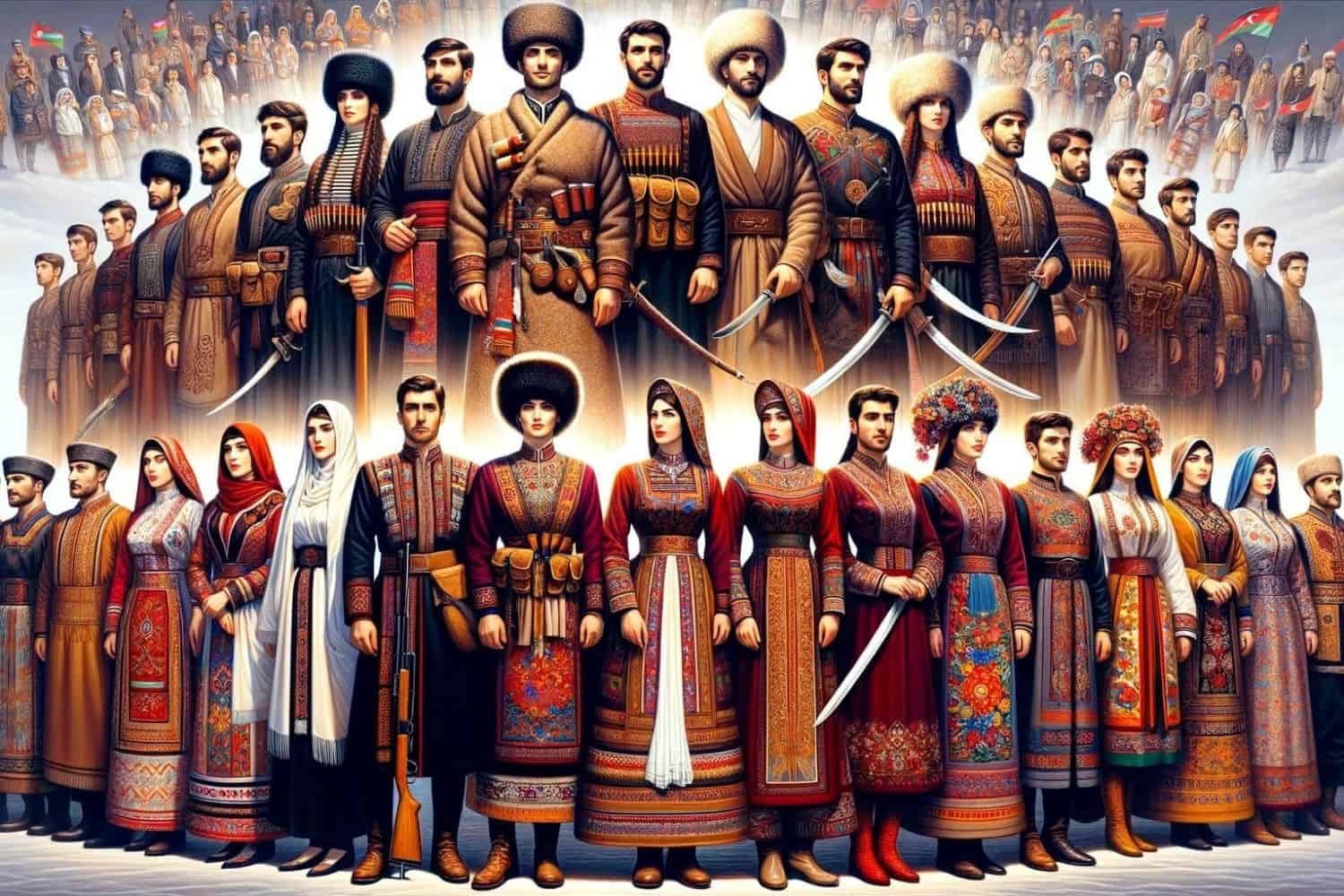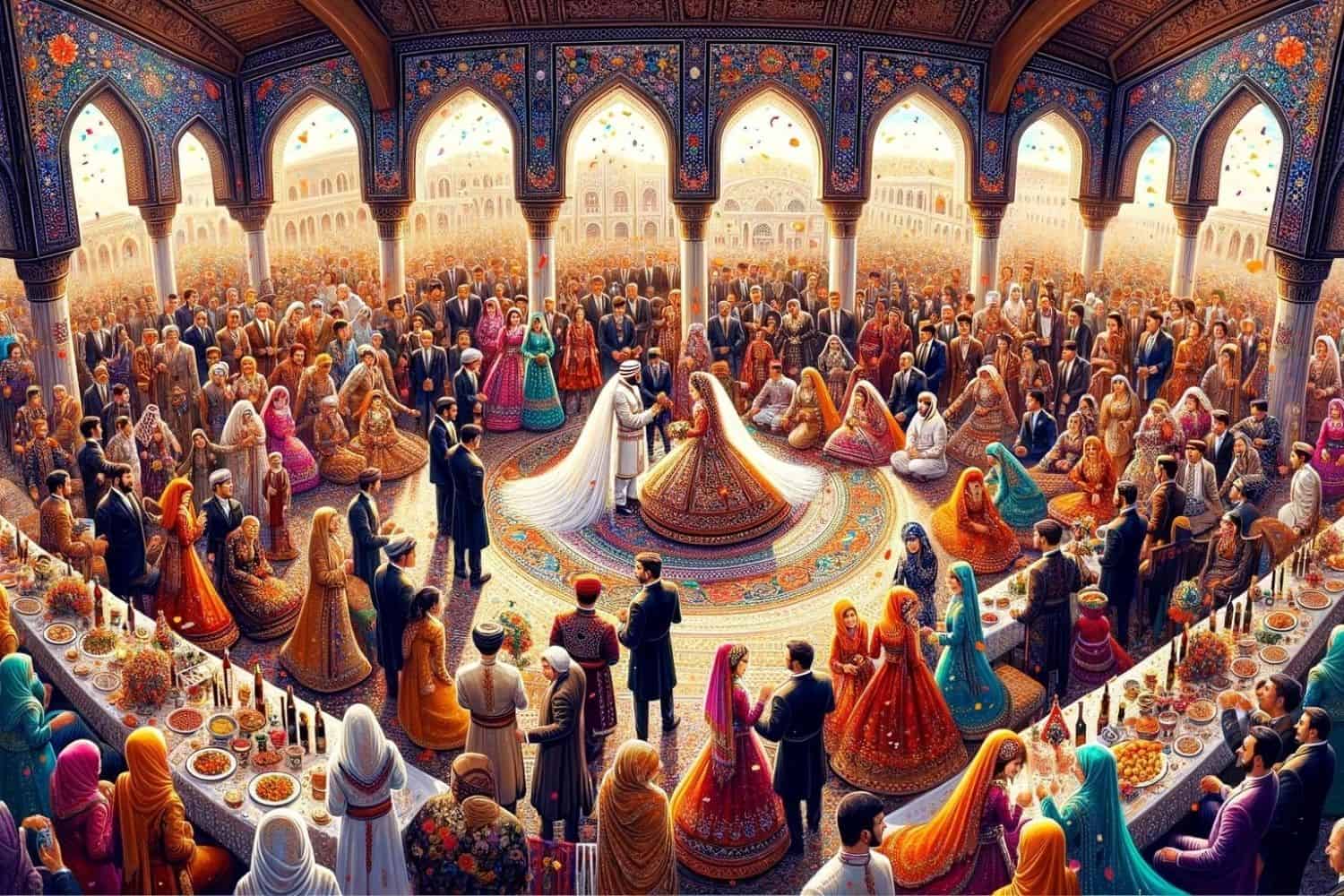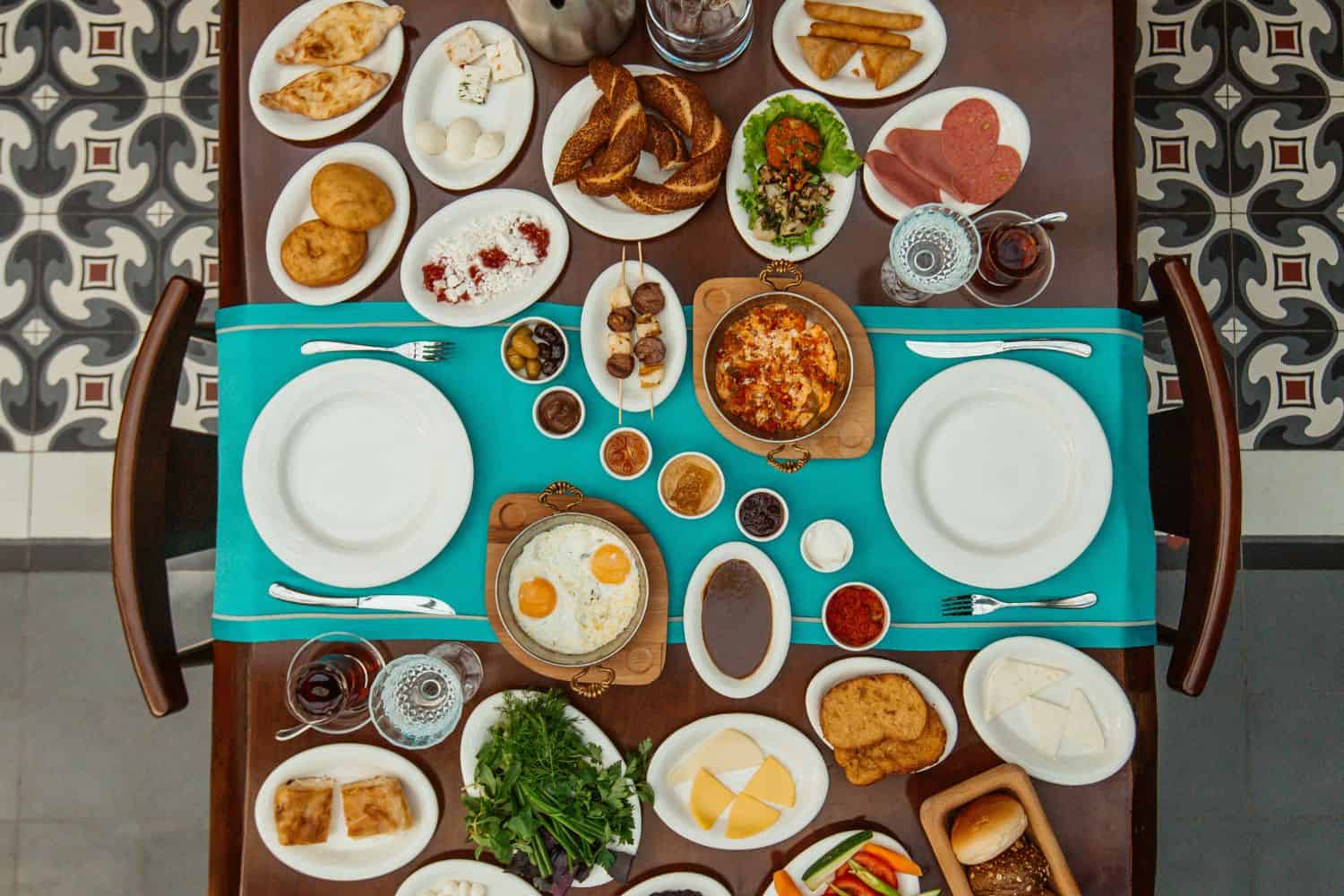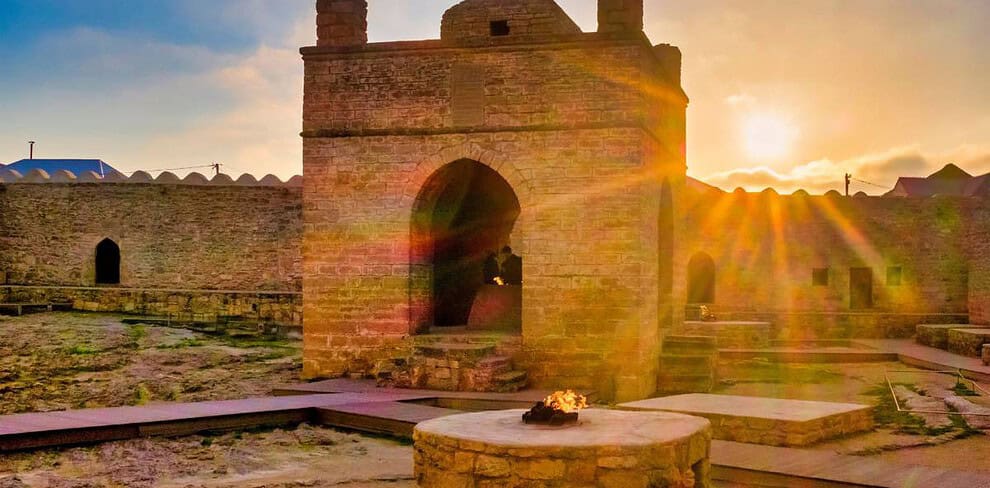Table of Contents
Explore Azerbaijan culture as we delve into a comprehensive understanding of the customs in Azerbaijan, celebrating its rich and diverse heritage, encompassing traditions, values, and unique customs and practices.
Azerbaijanis place a strong emphasis on hospitality, warmly embracing their guests. Family is the cornerstone of Azerbaijani society, characterized by close-knit bonds and a strong sense of community. It’s essential to acknowledge that Azerbaijan culture is in a constant state of evolution, influenced by historical events, regional dynamics, and global interactions.
Gaining insight into the culture of Azerbaijan can offer valuable perspectives into the intricate and multifaceted society of the nation.
Azerbaijan Culture
Here are the most important points to begin learning about Azerbaijan Culture and customs:
- Ethnic Diversity: Azerbaijan is a diverse country with various ethnic groups, each contributing to its unique customs and traditions. Azerbaijanis, Lezgins, Talysh, and Avars are some of the major ethnic communities.
- Languages: Azerbaijani (Azeri) is the official language, but there are several regional languages and dialects spoken across the country.
- Islamic Practices: Azerbaijan is predominantly a Muslim country, and Islam plays a significant role in Azerbaijan Culture. This includes daily prayers, fasting during Ramadan, and adherence to Islamic dietary laws. The majority of Azerbaijanis are Shia Muslims.
- Greeting Etiquette: Greetings are important in Azerbaijan Culture. Handshakes are common between men, while men and women often greet each other verbally with polite phrases and maintain modest physical distance.
- Traditional Clothing: Traditional Azerbaijani clothing varies by region and ethnicity, but both men and women commonly wear garments like the “chapan” for men and “poyəfər” for women, preserving their cultural identity.
- Cuisine: Azerbaijani cuisine is rich and diverse, featuring dishes like kebabs, pilaf, dolma, and a variety of pastries. It incorporates influences from the Middle East, Central Asia, and the Mediterranean.
- Hospitality: Azerbaijani hospitality is renowned. Guests are welcomed with tea, meals, and a warm reception. It is considered impolite to decline such offers.
- Respect for Elders: Showing respect for elders is deeply ingrained in Azerbaijani customs. Younger individuals demonstrate deference to their seniors through words and actions.
- Arts and Crafts: Azerbaijan has a rich tradition of arts and crafts, including carpet weaving, pottery, copperware, and traditional Azerbaijani painting known as “minaqi.”
- Music and Dance: Traditional Azerbaijani music includes instruments like the tar and kamancha. Folk dances like the “yalli” and “lezginka” are an integral part of cultural celebrations.
- Celebration of Festivals: Azerbaijanis celebrate various religious and cultural festivals, such as Ramadan Bayram, Gurban Bayram, and Novruz Bayram (New Year). These celebrations involve special prayers, feasts, and gatherings with family and friends.
- Family and Community: Family holds a central place in Azerbaijani society, and strong community bonds are crucial for support and social cohesion.
- Gender Roles: Traditional gender roles are still prevalent in Azerbaijan Culture, with distinct social spheres for men and women. However, evolving dynamics, especially in urban areas, are leading to changes.
- Arranged Marriages: Arranged marriages remain a common practice in Azerbaijan, with families playing a pivotal role in matchmaking. These unions are seen as commitments not only between individuals but also between families.
- History and Resilience: Azerbaijan’s history and experiences, including conflicts and transitions, have shaped its culture, fostering resilience and a sense of unity among its people.
These customs are essential aspects of Azerbaijan culture and are prominently visible in everyday life, reflecting the country’s rich cultural heritage and strong sense of community and tradition.
Azerbaijan Traditional Attire
Azerbaijani traditional attire reflects the country’s rich cultural heritage, regional diversity, and historical influences. The clothing worn by Azerbaijanis serves both functional purposes and holds significant cultural and social meanings.

1. Regional Variation: Azerbaijan’s traditional clothing varies from region to region, influenced by local climate, lifestyle, and ethnic traditions. In the colder northern and mountainous areas, people tend to wear heavier and more layered garments, while in the warmer southern regions, lighter clothing is preferred.
2. Azerbaijani Dress: The traditional attire of Azerbaijan includes garments like the “chokha” for men and the “parsi” for women. The chokha is a long coat made of wool or silk and is often adorned with elaborate embroidery, while the parsi is a colorful, layered dress for women. Both outfits are distinctive and represent Azerbaijan culture.
3. Talysh and Lezgian Attire: Talysh and Lezgian ethnic groups in Azerbaijan have their unique traditional clothing. Talysh men may wear loose pants and a long coat, while Talysh women often wear dresses with bright colors and intricate patterns. Lezgian attire for men includes baggy pants and a tunic, while women’s dresses are known for their vibrant embroidery.
4. Nomadic and Tribal Clothing: Nomadic tribes in Azerbaijan, such as the Shahsevan people, have unique attire tailored to their nomadic lifestyles. They may wear colorful garments, heavy jewelry, and distinctive headwear, all of which hold symbolic significance for their tribal identity.
5. Modesty and Cultural Significance: Traditional Azerbaijani clothing emphasizes modesty, with loose-fitting garments that cover the body. The choice of colors, fabrics, and embroidery often carries cultural and regional significance, and the attire may also indicate one’s social or marital status.
6. Special Occasion Attire: Azerbaijanis dress elaborately for special occasions and celebrations, adorning themselves with vibrant and intricately decorated clothing, along with jewelry and accessories. Weddings, festivals, and religious events provide opportunities to showcase their finest traditional attire.
7. Adaptation to Modernity: While traditional attire remains important, urbanization and modern influences have led to the integration of Western clothing in daily life, especially in cities like Baku. Many Azerbaijanis wear a blend of traditional and contemporary clothing, reflecting changing lifestyles and global fashion trends.
Azerbaijani traditional attire serves as a visual representation of the country’s cultural diversity, history, and identity. It reflects the fusion of various traditions that have shaped Azerbaijani society for centuries.
Azerbaijan Marriage Traditions
Marriage traditions in Azerbaijan are deeply rooted in its rich cultural and historical heritage, with variations seen among different ethnic groups and regions. These traditions hold great significance in Azerbaijani society, reflecting both historical practices and modern influences.

1. Arranged Marriages: Arranged marriages are a common practice in Azerbaijan. Families often take a central role in selecting suitable partners for their children. These arranged marriages are considered a way to maintain cultural ties and ensure compatibility between families.
2. Matchmakers: Matchmakers, known as “görücü” in Azerbaijani, assist in finding compatible matches for individuals. They take into account factors such as family background, social status, and compatibility when suggesting potential partners.
3. Engagement: Once a suitable match is found, the engagement process begins with a formal agreement between the families. This agreement, known as “nişan,” signifies the commitment of the couple to marry.
4. Wedding Celebrations: Azerbaijani weddings are elaborate affairs that often span several days. They typically involve traditional rituals, lavish feasts, music, and dancing. The main wedding ceremony, known as the “toy,” involves the signing of the marriage contract and is typically held in a venue or at home.
5. Bride Price (Gelin Qaynaghi): The groom is expected to provide a “gelin qaynaghi” or bride price to the bride’s family as a symbol of commitment and financial support. The size and form of this payment may vary depending on the families and regions involved.
6. Bridal Attire: Brides in Azerbaijan often wear beautifully designed dresses, frequently adorned with intricate embroidery and jewelry. The style of attire varies by region and ethnic group, with Azerbaijani, Lezgian, Talysh, and other brides showcasing distinct styles.
7. Post-Wedding Customs: Following the wedding, various traditions may continue, such as the “toy toyu,” a celebratory feast hosted by the groom’s family, and the “gelin alma,” a ceremony where the bride formally enters her new household.
8. Social and Religious Significance: Marriage is not just a social event but also a religious sacrament in Azerbaijan, with strong connections to Islamic customs and traditions. The marriage contract, often referred to as the “nikah,” is conducted in accordance with Islamic principles and may include recitations from the Quran.
9. Family and Community Involvement: Azerbaijani weddings are not only a celebration of the couple but also a community affair. Extended families and the wider community play important roles in supporting and participating in the festivities.
10. Contemporary Changes: In urban areas and among the younger generation, there is a growing trend toward love marriages, where individuals choose their partners based on personal preferences. However, these unions may still incorporate traditional customs and ceremonies.
Azerbaijani marriage traditions emphasize the importance of family, community, and cultural identity in Azerbaijani society. While some practices have evolved over time, they remain a significant part of Azerbaijani life, preserving the nation’s cultural heritage and social bonds.
Azerbaijan Food Culture
Azerbaijan food culture is a captivating and diverse reflection of its history, geography, and the fusion of culinary traditions from Central Asia, the Middle East, and Eastern Europe.

- Regional Variation: Food from Azerbaijan, influenced by the diverse geography stretching from lush lowlands to rugged highlands, boasts a plethora of regional delicacies. Every distinct area embraces indigenous ingredients and culinary methods, resulting in a vibrant mosaic of flavors.
- Staple Foods: Azerbaijani cuisine heavily relies on staple foods like rice, bread (especially lavash or Azerbaijani bread), and grains such as wheat and barley. Rice dishes like “plov” and “shah pilaf” are particularly beloved.
- Kebabs and Grilled Meats: Grilled meats, notably kebabs, are an integral part of Azerbaijani cuisine. Lamb, beef, and chicken are frequently used, often marinated in a blend of aromatic spices before grilling.
- Flavorful Spices: Azerbaijani cuisine incorporates a range of spices and herbs like sumac, saffron, mint, and turmeric. These spices infuse dishes with depth and complexity.
- Traditional Dishes: Azerbaijani cuisine boasts traditional dishes like “dushbara” (dumplings), “gutab” (filled flatbreads), “lavangi” (stuffed vegetables), and “pakhlava” (pastry). These dishes may exhibit regional variations.
- Use of Yogurt: Yogurt is a common ingredient in Azerbaijani cuisine and is featured in dishes such as “matsun” (yogurt-based dips), “ayran” (yogurt drink), and as a condiment.
- Tandoori Baking: The tandoor, a clay oven, is frequently employed for baking bread and preparing dishes like “tandoori lamb” and “lavash.”
- Sweets and Desserts: Azerbaijani sweets often incorporate ingredients like nuts, dried fruits, and rosewater. “Shekerbura” and “pakhlava” are popular desserts, particularly during festive occasions.
- Tea Culture: Azerbaijanis have a strong tea culture, with black tea being a favored choice. It is often brewed robust and served sweet, complementing conversations and social gatherings.
- Family and Community Dining: Azerbaijan culture places significant importance on communal dining. Families and friends frequently gather around a “sofra” (tablecloth) to share meals together.
- Influence of Azerbaijani Diaspora: Azerbaijani cuisine has gained recognition and popularity in various parts of the world thanks to the Azerbaijani diaspora. Azerbaijani restaurants in international cities offer a taste of Azerbaijan culture to diverse audiences.
- Resilience and Adaptability: Despite historical challenges, Azerbaijani cuisine has persevered and adapted. The ingenuity of Azerbaijani cooks is evident in their ability to create delightful dishes even in adverse circumstances.
Book our services
These guiding services ensure that your journey is not only enjoyable but also informative and hassle-free. Azerbaijan’s cultural delights, historical marvels, and natural wonders await your exploration with RJ Travel LLC. Our Azerbaijan Private Tours are designed to immerse you in the rich cultural heritage, historical significance, and breathtaking landscapes of this extraordinary nation.
Contact Us and our team will make sure to help you plan your trip to Azerbaijan when it’s safe and ready for travel. Whether you’re interested in joining a pre-arranged Azerbaijan small group tour o
More About Azerbaijan
[the-post-grid id=”50339″ title=”Azerbaijan Main page”]
Book Your Trip to Azerbaijan Today!
Embark on an unforgettable journey and explore the allure of Azerbaijan through our exclusive tours.

